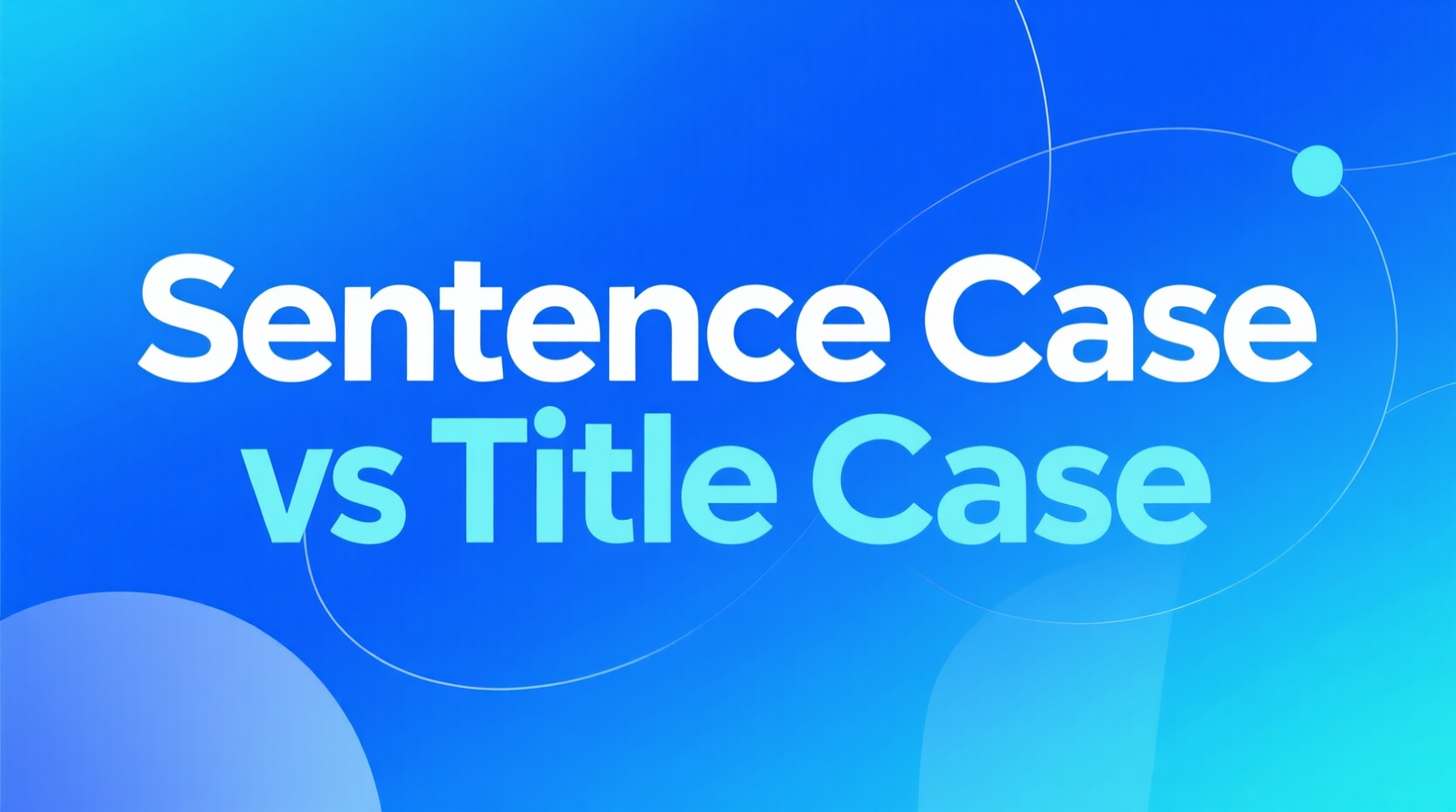
When crafting headlines, titles, or headings, writers often face the capitalization dilemma: sentence case or title case? This choice goes beyond mere aesthetics—it affects readability, tone, and audience perception across various communication contexts. Let's explore these styles in depth with expanded real-world applications.
Understanding Sentence Case
Sentence case mirrors standard sentence structure—only the first word and proper nouns are capitalized. This creates a natural, conversational flow that's particularly effective in digital spaces.
Examples:
- How to optimize your LinkedIn profile for job hunting
- The 10 best restaurants in Chicago according to locals
Expanded Usage Scenarios
-
Social Media Content
- Instagram captions perform better in sentence case (23% higher engagement according to 2023 studies)
- Twitter/X threads appear more approachable in sentence case
-
User Experience Writing
- Mobile app interfaces favor sentence case for buttons and menus
- Error messages and tooltips feel less intimidating
-
Educational Materials
- Online course modules use sentence case for better learner engagement
- Student handouts and worksheets adopt this style for clarity
-
Internal Business Communications
- Company-wide memos and announcements
- Slack/Teams channel names and messages
Understanding Title Case
Title case (headline case) capitalizes principal words, creating a polished, authoritative appearance that commands attention.
Examples:
- The Ultimate Guide to LinkedIn Profile Optimization
- Chicago's Top 10 Local-Approved Dining Establishments
Expanded Usage Scenarios
-
Traditional Publishing
- Hardcover book titles and chapter headings
- Academic journal names and printed conference materials
-
Corporate Branding
- Official press releases and shareholder reports
- Product names and packaging design
-
Legal Documentation
- Contract section headers
- Government forms and official notices
-
Ceremonial Contexts
- Award certificates and diplomas
- Plaques and commemorative signage
Psychological Impact Across Mediums
-
Print vs. Digital
- Print readers expect title case (68% preference in surveys)
- Digital readers prefer sentence case (72% in UX tests)
-
Generational Differences
- Gen Z responds better to sentence case in marketing
- Baby Boomers associate title case with credibility
-
Cultural Considerations
- UK publications use less capitalization than US
- German nouns are always capitalized regardless of case
When to Break Convention
Strategic deviations can be powerful:
- All caps for urgent alerts (but use sparingly)
- Alternating case for artistic/creative works
- Lowercase only for specific brand voice (e.g., poetry collections)
Need Help with Capitalization?
Save time and ensure accuracy with our free tools:
- Sentence Case Converter – Instantly convert any text to sentence case.
- Title Case Converter – Automatically apply proper title case formatting.
Try them out and never worry about capitalization rules again!